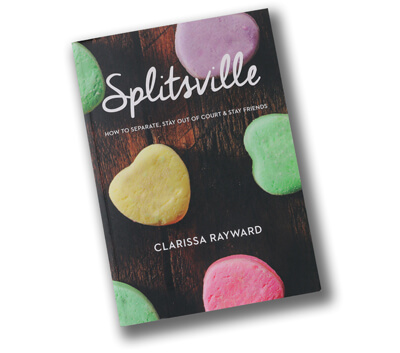Almost all of us have had our hearts broken at some stage in our lives. For me, it first happened when I was 16 years of age. I still remember those feelings so well- waking up each morning, those first few seconds when my world seemed okay, before that moment where everything seemed to stop. There was that horrible sinking feeling in my stomach as I felt that heartbreak again and again. Of course, I was 16 and at High School and had no understanding of what life in an adult relationship really meant or what pain could flow from the end of a marriage.
I imagine most people in married or significant relationships at some point in time think about throwing it all in. For most of us, this is a fleeting thought that comes and goes as we remind ourselves of all of the good things associated with our relationships.
But when you are on the receiving end of that age old break up line “It’s not you, it’s me”, chances are the heartbreak, the stomach twisting angst, anger and depression come flooding in.
In 1969 the Swiss American Psychiatrist, Elisabeth Kübler-Ross identified that there are five stages of grief commonly experienced by most us as we adjust to the death of a loved one. Her work has since been applied to the grief experienced during separation and divorce and other major personal losses in our lives. The five stages include Denial, Anger, Bargaining, Depression and finally, Acceptance. She proposed that we move back and forth through the various stages of grief as we process the loss we have experienced. Some of us move quickly in almost a linear pattern, while others will move back and forth or even get stuck and never come out the other side.
I understand that her theories, like so many of these things, have been challenged, but at the end of the day I find the Kübler-Ross stages of grief a perfect way to start conversations with my clients who are often experiencing an array of very strong emotions as a result of their relationship breakdown.
A few weeks ago I was meeting with a new client, Amy. No sooner had she sat in a chair in my office than the tears started streaming down her cheeks and between her sobs and her raised voice she tried to tell me what had been happening in her life. It turned out her husband of 25 or so years had left her. She was not at all prepared for his decision and she seemed to be to still be in a state of both shock and denial.
It took me a little while to calm Amy down so we could manage a conversation. I tried a few of my usual ‘tricks’ but not too much worked initially. She was distressed and there was very little I could say that was going to change that for her.
I spoke to Amy about grief, and particularly her grief and how her feelings were ‘normal’. She told me that the idea that how she felt was ‘normal’ was of no assistance to her at all. In fact, she did not care how many other people felt like her, all she knew was that she felt terrible and she just wanted to feel ‘better’ again.
During my discussion with Amy I watched her move from anger to depression to denial and back to anger before she started to calm and then tell me her story.
She told me that only a few weeks ago she had sat herself down, gave herself a stern talking to and had decided to write a letter to her husband- a Break-up letter. She had been so shocked when he told her he was leaving, but since then she had realised that she should have left him long ago. She only wished she had- that it was her choice, not his, and that she could have told him “It’s not you, it’s me”.
So, she decided that she was going to break up with him. She sat and imagined she and her husband were still together and wrote her letter, her version of “It’s not you, it’s me”…. And by doing so she took back control of her own destiny.
Amy never delivered that letter, but it was never written to be read. No sooner had she written it than it was destroyed- but what a smart idea. Once Amy told me about her letter I saw her relax back in her chair and for the first time that day we were able to talk together about what her future might hold. The mere act of regaining a little bit of control, when so much of her life seemed out of control, was a big step for Amy who was searching for ways to move through her grief and start a new chapter in her life.
Divorce is one of the most painful experiences many of us will have to face. A divorce will mean change to many parts of your life and with it comes an overwhelming sense of loss which has, at its heart, a loss of personal identity. Your separation will reach beyond just you and your partner and will likely mean change for your children, your family, friends, business associates and your community of supports.
Divorce and separation mean change. Change in a significant way is never easy for anyone to cope with. Having to let go of a significant relationship affects your sense of security. A marriage or significant relationship is a support system through which our worlds are often defined. The end of that marriage means the end of a support system and may mean that we need to redefine how we identify ourselves. This is often the case for people coming out of very long marriages that have spanned the majority of their adult life.
If you can understand the stages of your own grief and at the same time identify where your partner might be at in their grief cycle, then you will both be better able to move through your divorce and separation without causing harm to each other.
Find ways to help yourself through and don’t be afraid to seek professional support over this time. Or maybe try writing a letter, just like Amy, and take back some control of your own destiny.







